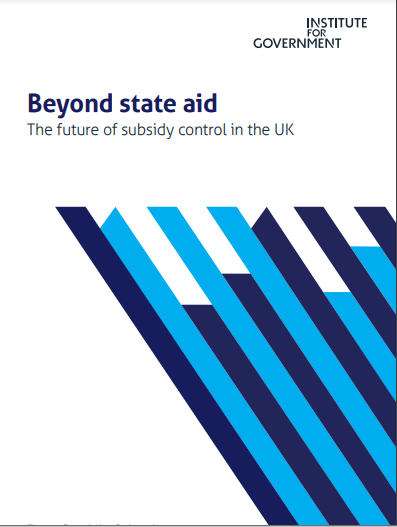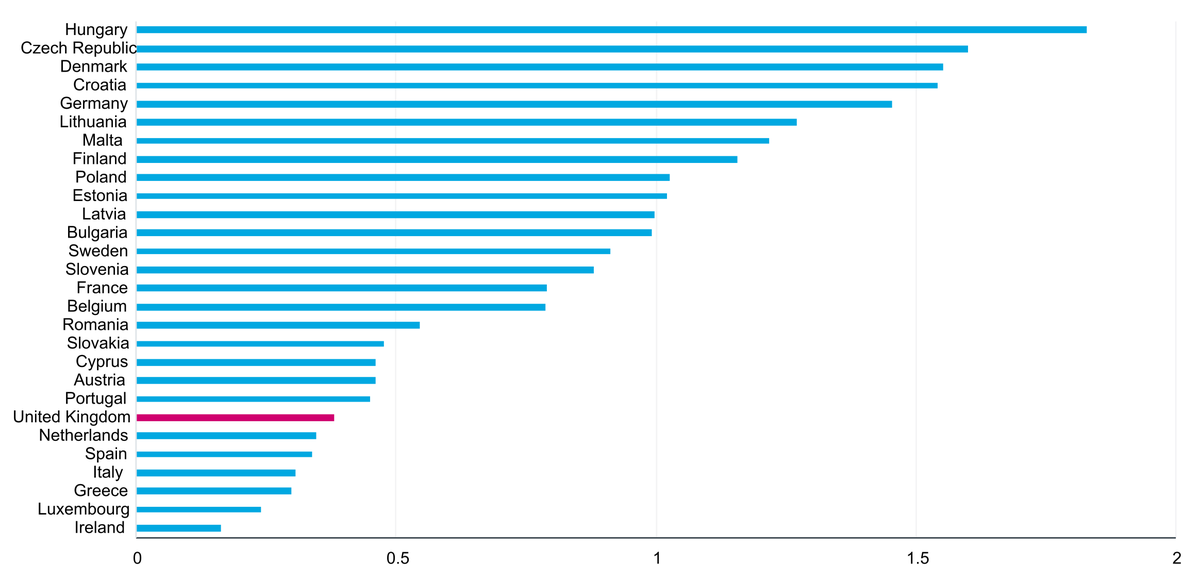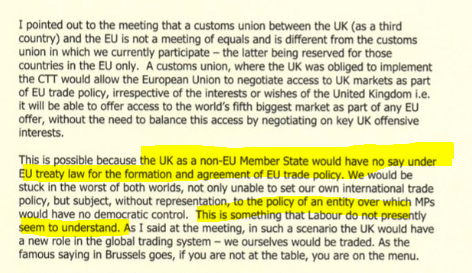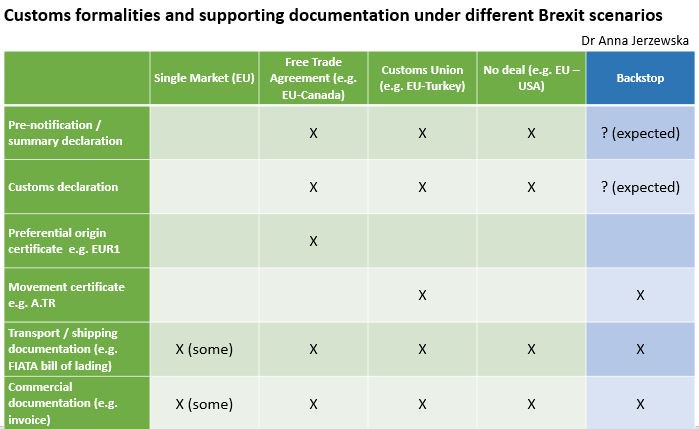
Occasionally compressing complexity into clarity. Amateur software dev, AI, political econ, governance, tech, culture
2 subscribers
How to get URL link on X (Twitter) App


 First some context. The UK is not a big subsidiser as the chart below shows. But that could change. Rumours about a new light touch regime to enable more subsidies of UK priorities have been reported - we get to the wisdom of this in a moment. 2/
First some context. The UK is not a big subsidiser as the chart below shows. But that could change. Rumours about a new light touch regime to enable more subsidies of UK priorities have been reported - we get to the wisdom of this in a moment. 2/ 
https://twitter.com/pmdfoster/status/1273868177064308736That's what makes state aid complex. The rules can be clear but the flexibility in how they are interpreted is massive. Then if you imagine a UK and an EU authority having fundamentally different interests and perspectives it becomes even harder... 2/
https://twitter.com/FinancialTimes/status/1266014560152178689If there is a level of constraint the UK can offer that at the same time provides a flexibility to do things differently the EU can accept there will be a deal.
https://twitter.com/SamuelMarcLowe/status/1169266080814178304If the question is: What alternative can we have that does the job of the backstop? The answer is NI-only covering agri, industrial goods, VAT and remaining in the EU's customs territory - i.e. the EU's original proposal.
https://twitter.com/nick_gutteridge/status/1166293343443271680On the EU side they have been clear that the backstop has to remain as is. It would be a massive loss of faith and extremely politically damaging to concede that now. On the UK side anything other than removal of the backstop, if not whole passages of the WA = no deal 2/



 2. Energy (Single electricity market, natural gas), broadcasting, chemicals, cross border police cooperation. How all of this will function has to be sorted out without materially harming the cross-border cooperation that does occur. We are familiar with the options by now.
2. Energy (Single electricity market, natural gas), broadcasting, chemicals, cross border police cooperation. How all of this will function has to be sorted out without materially harming the cross-border cooperation that does occur. We are familiar with the options by now. 

https://twitter.com/CER_Grant/status/11379759654249922562. Is the WA acceded to under duress really sustainable? Is there any possibility of conducting a negotiation after that? There would be low-level technical cooperation on the border. The UK would probably agree to pay the money. But it would set in motion a radical divergence.
https://twitter.com/DavidHenigUK/status/11360168041517342732. There are two things that follow from severing your formal relations with the EU: A diplomatic crisis and an economic crisis. Any residual goodwill from EU member states is gone and relations will be damaged for a long time. That's the context of no deal.

 The letter starts with the benefits of trade and a basic definition of a customs union. So far so good. The letter then makes a valid point that the UK would not have a veto on EU trade policy and Labour's "say on trade policy" will never amount to this. 2/
The letter starts with the benefits of trade and a basic definition of a customs union. So far so good. The letter then makes a valid point that the UK would not have a veto on EU trade policy and Labour's "say on trade policy" will never amount to this. 2/ 


https://twitter.com/FHeisbourg/status/1093397661477154816For those that see themselves as a bulwark against the rising tide of anti-EU sentiment from within, caving to Eurosceptic demands is anathema. To them it may undermine the EU project more than no deal. The EU project is the operative incentive 2/
https://twitter.com/nick_gutteridge/status/1089910806198845440That this doesn't exist currently is not a good reason for why it's impossible. You're asking for the unprecedented. The problem is max fac is simply the wrong tool. You have a bunch of new legal requirements and the only way to remove them is a legal agreement like SM or CU 2/

https://twitter.com/DavidHenigUK/status/108878955564019302470% of cross-border journeys by NI registered Heavy goods vehicles start at or end in areas close to the border - mainly Newry, Monaghan, Aughnacloy, Dundalk, Middletown. Half of all heavy goods vehicles go through the Newry-Dundalk corridor. 2/



https://twitter.com/awstojanovic/status/1083435920219664384First, it was argued that the impact of rules of origin in the short-term for specific industries and specific products is obscured by the relatively smaller macro impact. For example see this excellent report for the food and drink industry 2/ fdf.org.uk/rulesoforigin-…

https://twitter.com/pmdfoster/status/1083407650560401408This could even overstate the benefits. Most studies assume a customs union means no customs costs. It doesn't. It still means a movement certificate and possibly a customs declaration as well. @AnnaJerzewska's helpful diagram compares the two... 2/


https://twitter.com/lisaocarroll/status/1072797071244173313Put aside the fact this is redundant as the EU will not renegotiate. Let's explore fantasy island for a moment. The tone is set by the first demand on money. We'll pay upon the achievement of milestones related to the FTA. Remember this is money for a meal we've already eaten 2/

https://twitter.com/timd_IFG/status/1039816835955351553It is not unreasonable to propose solutions that require some flexibility from the EU. This is an unprecedented situation. The problem is that we began with denying there was a problem, and we have continually squandered goodwill since. 2)
2. Because at the same time we can agree mutual recognition with the EU or get the WTO to force the EU to recognise the UK's rules. This obscures the real choice ministers must make by encouraging them to believe there is no trade off.
External Tweet loading...
If nothing shows, it may have been deleted
by @PeterKGeoghegan view original on Twitter
2. The more comprehensive this alignment is - level playing field provisions, ECJ dispute resolution and Commission oversight - the more the negotiation over the backstop becomes the "fullstop" to use @jl_owen's phrase
External Tweet loading...
If nothing shows, it may have been deleted
by @SamCoatesTimes view original on Twitter
There's no indication the cabinet have found consensus on this. That's because it does preempt the future relationship. The UK would have to make hard choices now - if we want a basic FTA we'd have to accept a NI specific deal. Post agreeing a UK backstop that seems unlikely. 2)
External Tweet loading...
If nothing shows, it may have been deleted
by @AlasdairMSmith view original on Twitter